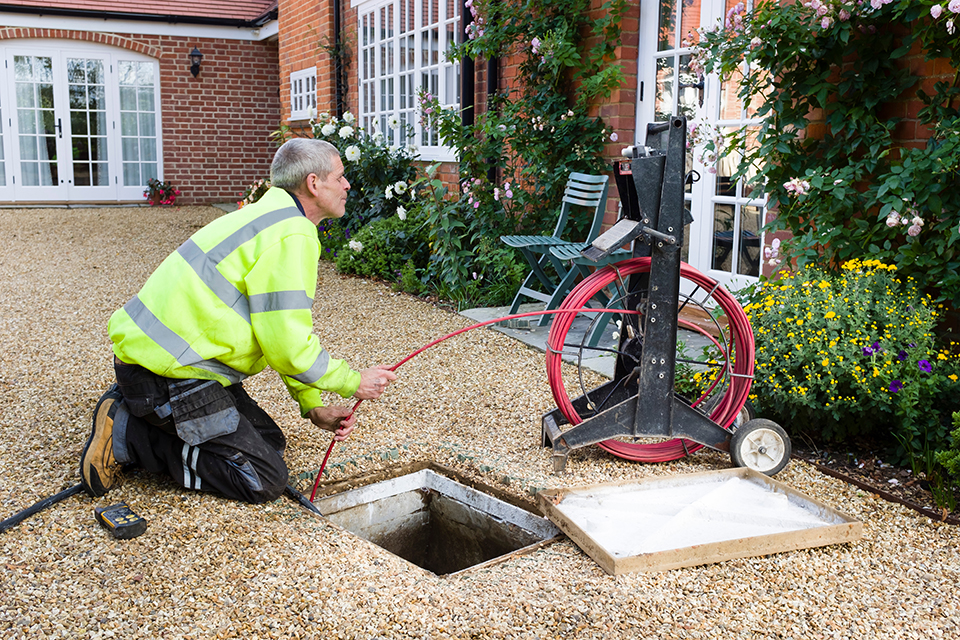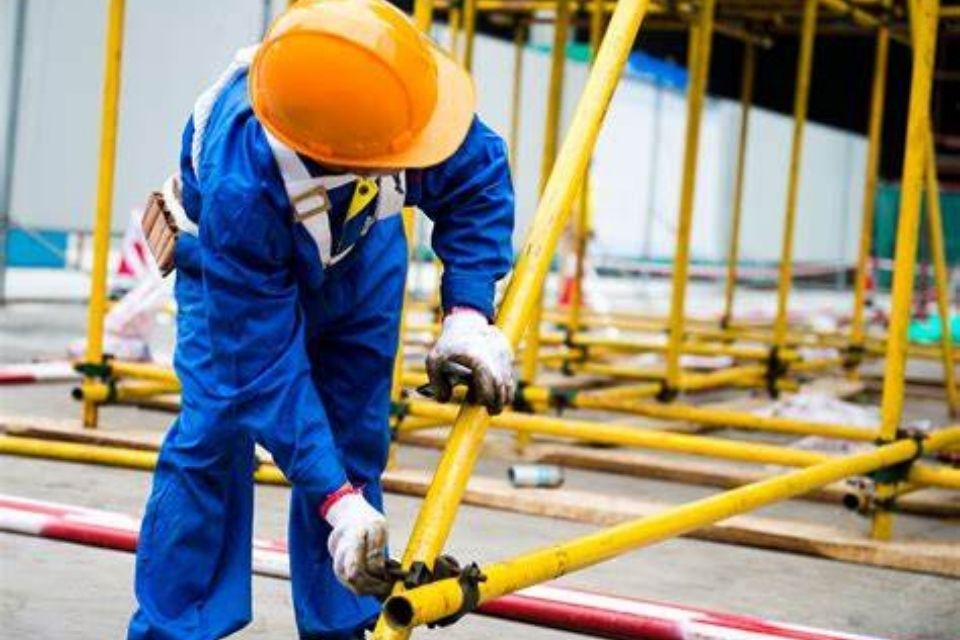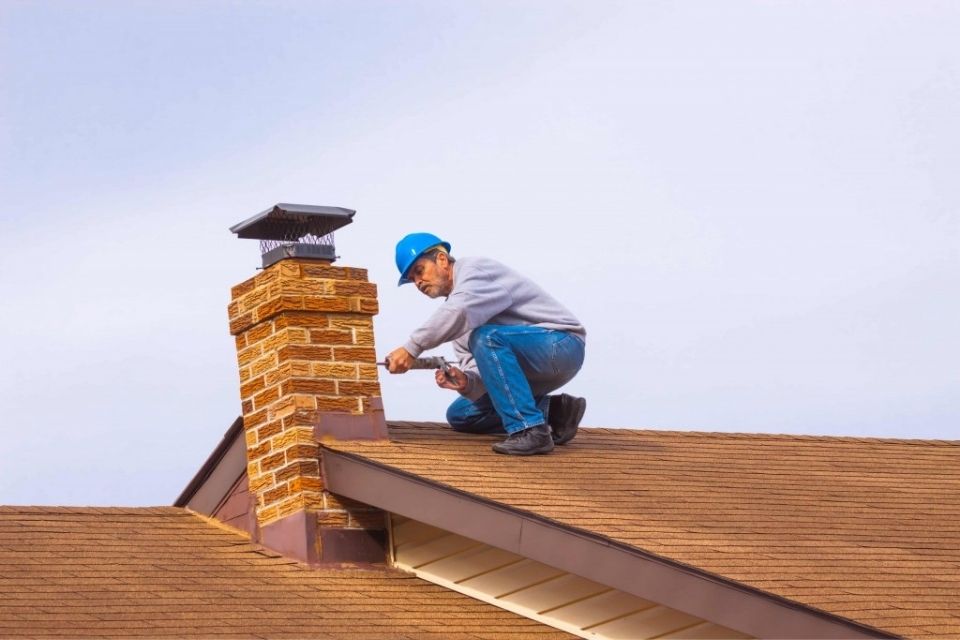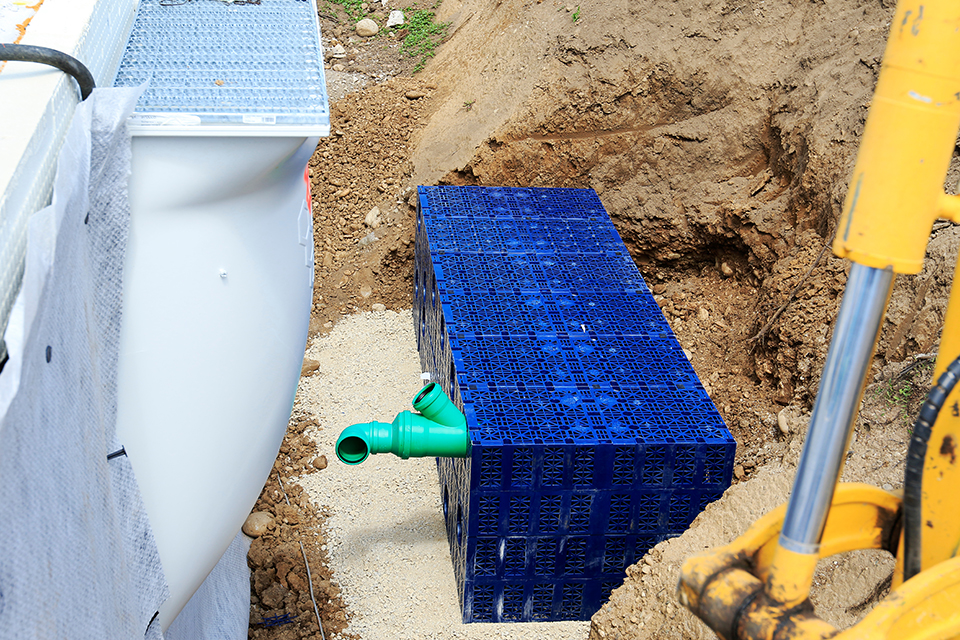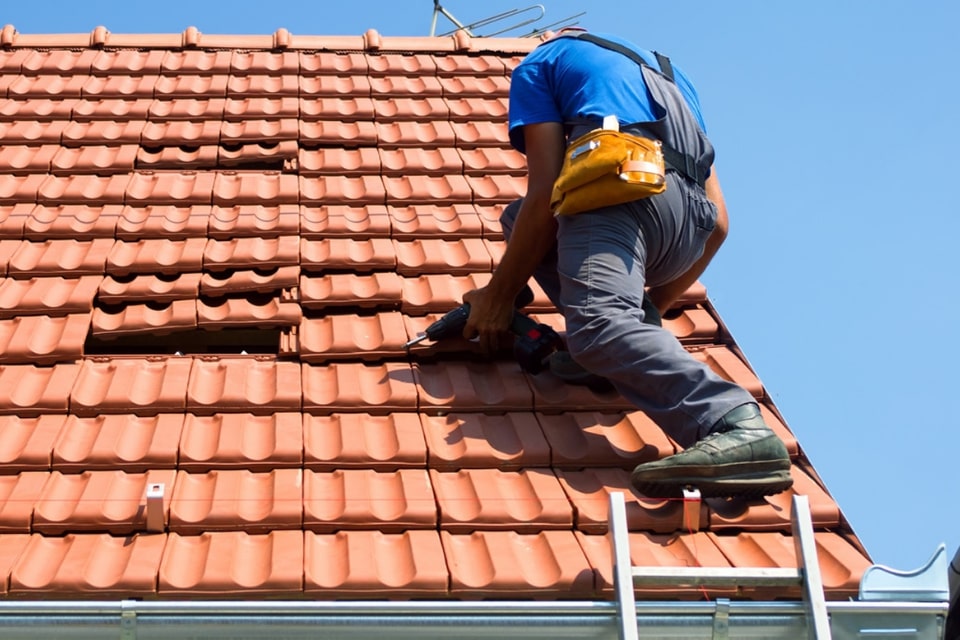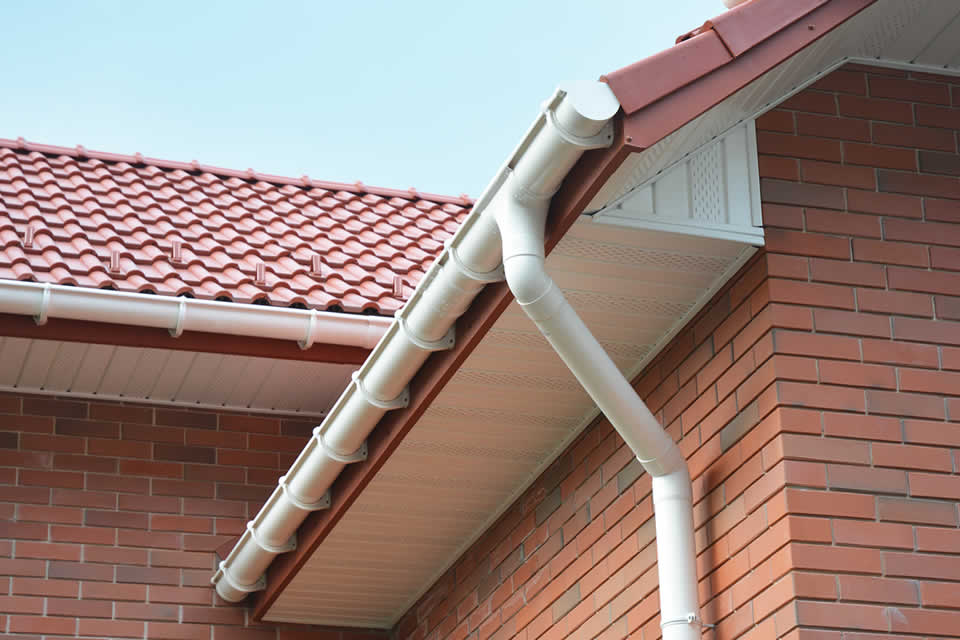How Much Does it Cost to Unblock Drains?
If you notice a strange odour outside your home or your sink takes forever to drain, you may have a blocked drain. But don't worry – nine times on average, you'll be capable of restoring it on your own and won't need to call for help.
But, before you put on your overalls and tool belt, you must first answer a crucial question: is the blockage your fault?
If it's a private drain within your property's boundaries, it's your responsibility to keep and fix it, and you can proceed.
If an external drain, such as a lateral drain shared with your neighbours, is clogged, you may not be alone in this problem. It could fall under the purview of your water and sewerage company.
We will go over the various costs to unclog a drain in your home, so you know what to expect!
The cost of drain unblocking is affected by various factors, the most notable of which is your location within the region, the length of the obstruction in the drains or the drain size, and the methods used to remove it.
Suppose you are unable to unclog your drains yourself. In that case, you should expect to pay an initial call-out fee of about £60 - £80 for a qualified practitioner to visit your home and assess the problem and additional charges for the unclogging service provided.
If you only have a minor blockage, services are offered may be a suitable solution, costing around £80 - £100 plus labour, whereas larger blockages may necessitate jetting, which can cost up to £200- £400 depending on your location in the UK as well as the provider you choose.
There is no set price for drain unclogging and jetting because the time and labour involved vary from job to job, and quotes vary from service provider to service provider; however, there are estimates for different unblocking methods.
The estimated cost of unblocking a drain with rods and jetting is around £150 - £200, presuming no major blockage, but this increases proportionally to the difficulty of the job.
Before hiring a contractor, check your home insurance policy, as many policies cover drain unblocking.
But they may be able to get in touch with a drain cleaning company for you, but there is often a £100 - £130 minimum call-out fee if you go through your insurance provider.
If one of your interior drains becomes clogged, there is no doubt about it; it is your responsibility to unclog it.
Pouring fat or oil from your delightful roast dinners or coffee beans down the sink are two common causes of kitchen blockages.
If your bathroom sink or bath drain is clogged, it's usually due to hair or clumps of soap that have accumulated.
The cost of unclogging drains will vary depending on the problem and the method used. Unblocking a clogged toilet, bath, or sink, for example, will cost around £50 to £70, whereas general draining cleaning will cost around £80 to £100.
Finally, prices will always vary depending on the difficulties involved in the job at hand and the time you require a service; evening and weekend problems typically cost more, and most emergency services will incur a fee.
However, having a professional handle the problem will provide you with peace of mind and a clean, unblocked drain in a matter of a few hours.
Unblocking Drain Prices
The table below will break down the costs of unblocking a drain:
| Job | Cost |
|---|---|
| Call out fee | £60 - £80 |
| Minor blockage | £80 - £100 |
| Large blockage | £200 - £400 |
| Call out fee (insurance) | £100 - £130 |
| Unblocking a clogged toilet, bath, or sink | £50 - £70 |
| General draining cleaning | £80 - £100 |
What Are the Supply Costs for Drain Unblocking?
Almost everyone will encounter a clogged drain at some point in their lives. Clogged drains are frequently caused by soap, food, mud, hair, or other material build-up. This build-up reduces water flow and can cause a mouldy odour to permeate the home.
We'll go over the supplies needed to unclog a drain here, so if you want to buy the components yourself or DIY the job to save money, you'll find out what you'll need to buy here!
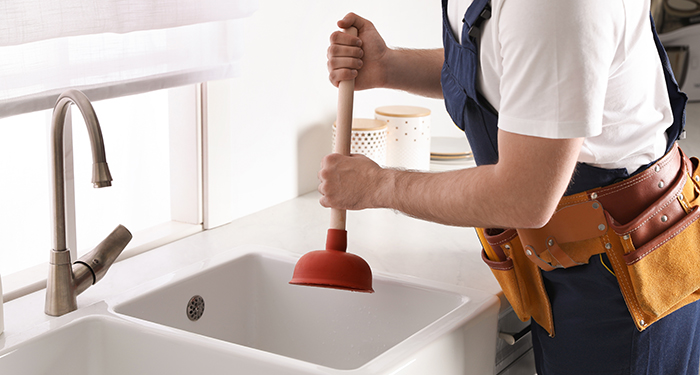
Toilet plungers are commonly used to unclog them. They can, however, be used to clear minor clogs in sinks and showers. For example, a handyman may first use a plunger to unclog a drain. This will cost between £3 and £7.
A manual drain snake resembles a long cable with a corkscrew-like end. A handle is attached to the cable, which is used to pump the cable through with a drain. Plumbers will first insert the cable end into the drain opening.
The cable will be pushed through the drain using the crank. They will manoeuvre the cable until they break through the clog when they reach it. This typically costs between £50 and £150, depending on what type is required.
A motorised drain snake works in the same way as a manual drain snake. But on the other hand, these drain cleaning tools are frequently used on larger pipes or even more stubborn clogs.
Motorised drain snakes are available in both wired as well as cordless versions. The motor increases the plumber's ability to push through pipe build-up. These snakes have fully automated feeds that help with cable movement.
The plumber can simply push the cable through to the pipe with a button and just as easily retract it once the pipe has been unclogged. This will cost between £200 and £300 to purchase.
A drain auger is a tool that is comparable to the drain snake. Drain snakes are most used to unclog clogged sinks and relatively small drains.
Drain augers are intended for larger pipes, such as those in the toilet or shower. Drain augers, like drain snakes, are available in both manual and motorised versions. A drain auger costs between £100 and £150.
A plumber would use a hydro-jet, which costs between £80 and £150, to clear the most stubborn clogs. This device pushes high-pressure water through pipes to decompose drain build-up.
This tool is typically quicker and more accurate than a standard drain snake. Hydro jets not only clear the clog but also clean the drains.
The force of the water aids in the removal of residue from the pipe walls. As a result, this tool clears a clogged drain and reduces the possibility of future clogs or more serious pipe damage.
One of the most frequent causes of drain blockages is hair. Every day, the average person sheds 50 to 100 hairs. Most of this shedding occurs in the shower.
As a result, the large bulk of it ends up in the shower drain. Only one strand of hair will no longer suffice. The issue arises when many strands become entangled. More crowded homes may be at a higher risk of common drain clogging.
Fortunately, a plumber tool that specialises in hair removal exists. These drains are frequently made of plastic and come in all sorts of sizes, with prices ranging from £100 to £120.
Cable cleaning is suitable for both large and small plumbing jobs and costs between £40 and £90.
These machines use spinning blades at the end of a cable to cut through clogs. Furthermore, the blades will aid in the removal of residue build-up on the pipes. There are several types of cable cleaners, including sectional, continuous, and drum cable cleaners.
Sectional cable cleaners make use of multiple cables that can be up to 15 feet long. These machines are frequently preferred because they are less dangerous to operate. In addition, shorter cables have the advantage of being easier to replace if they kink or break.
Sectional cables move much faster and are much lighter than continuous machines. Continuous cable machines have only one cable, which can range in length from 25 to 100 feet.
On the other hand, the entire cable is stored inside the machine, making it thicker and more difficult to handle. On the other hand, the continuous machine can leave less mess than a sectional cable.
Regardless of how many drains cleaning tools plumbers have, a few plumbers use tools that can be found in the home. For example, baking soda and vinegar create a bubbling reaction that can help to loosen a clog.
It's a great idea to flush the drain with hot water after using baking soda and vinegar—this aids in the removal of the clog and any remaining residue from the pipes.
Baking soda ranges in price from £1 to £5, while vinegar ranges in price from £2 to £6.
The supply costs to unblock a drain will be listed in the table below:
| Supply | Cost |
|---|---|
| Toilet plungers | £3 - £7 |
| Manual drain snake | £50 - £150 |
| Motorised drain snakes | £200 - £300 |
| Drain auger | £100 - £150 |
| Hydro jet | £80 - £150 |
| Hair remover | £100 - £120 |
| Cable cleaning | £40 - £90 |
| Baking soda | £1 - £5 |
| Vinegar | £2 - £6 |
What are the Additional Costs of Unblocking a Drain?
It's critical to keep your outside drains in good working order and to avoid common blunders that can cause major headaches.
Outside drain blockages are commonly caused by leaves, twigs, soil, mud, moss, litter, and other outdoor debris. However, the objects you pour or flush down your pipes on the inside could be just as (if not more) dangerous.
Pouring fat, oil, or coffee grounds down the sink, just like your inside drains, does not make a happy outside drain. Similarly, flushing wet wipes or sanitary items down a toilet or allowing hair and soap to accumulate in your shower frequently results in disaster.
Therefore, when this happens, you may decide to have additional work done to your home to save on labour costs, or other additional costs may add up to your overall price.
Here we will go over the different additional costs of unblocking a drain, so you know what to expect!
CCTV Drain Survey Cost
Your service provider may recommend a CCTV survey of your pipes. Some companies will do it for free if you buy an unclogging provider from them, whereas others will charge you up to £250 for the service.
This may be essential if clogging is a recurring problem, but it is not always necessary if it is a one-time occurrence.
A thorough inspection of your pipes will allow the tradesperson to pinpoint the blockage or determine who is liable for the unblocking, whether you, a neighbour or the local utilities provider.
The cost of a CCTV drain survey varies according to the type of survey performed. A basic CCTV drain survey typically costs between £65 and £165.
An average CCTV drain survey will cost between £90 and £200. A full CCTV drain survey with a report will cost you between £200 and £350.
The cost of the survey will be determined by the type of survey requested, the condition and size of the drainage system, the ease of access, and your location in the United Kingdom.
Those who live in and around London can expect to pay more than those who live in the North or other parts of the UK.
For further information, please refer to our guide on the costs of cctv drain survey.
Home Survey Cost
A new build survey typically costs between £260 and £620. The same is true for a condition report. So a home buyers survey will cost approximately £360 to £620, and a house building survey will cost approximately £460 to £980.
On the other hand, mortgage valuation is classified as a valuation report rather than a type of house survey. This could cost anywhere between £275 and £650.
The type of house survey, the size and type of property being surveyed, the number of surveyors hired, ease of access, and the location of your property are all common cost-influencing factors for a house survey.
For further information, please refer to our guide on the costs of house survey.
New Guttering Costs
The total cost of guttering varies according to the material used and/or the size of the area covered.
For example, covering a semi-detached house with 15 to 20 metres of guttering will cost roughly £600 to £900 in steel, £675 to £900 in aluminium, £675 to £1,000 in uPVC, £1200 to £1,500 in cast iron, or £540 to £1,100 in copper.
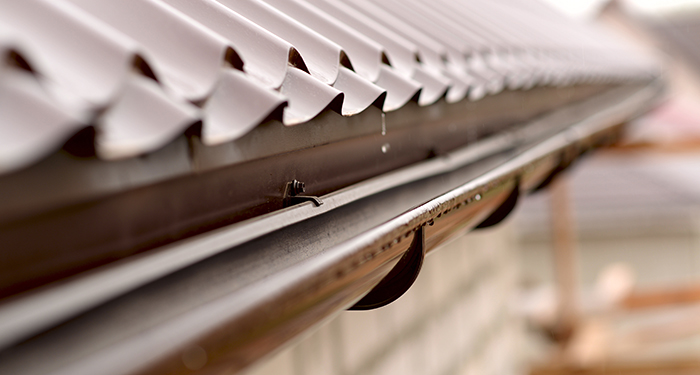
Fitting PVC guttering to a terraced house will cost around £400 to £500, £400 to £500 for just a semi-detached house, £500 to £700 for a detached house, £400 to £550 for just a bungalow, £240 to £360 for a flat, or £325 to £350 for a garage.
The typical labour cost for installing guttering on the house is about £200 to £300.
This is the same as the average daily rate charged by most guttering installers, only that the task of installing guttering on the house takes approximately one day.
Installing guttering in a garage could take less time and thus be less expensive than the above figure. A guttering installer's hourly rate is typically between £18 and £25.
For further information, please refer to our guide on the costs of guttering costs.
Cost Factors of Unblocking a Drain
Here are the common cost factors you may encounter when unblocking your drains:
Type of Blockage
The type of blockage will have a significant impact on the overall cost. For instance, if your drains are clogged, drain jetting could cost as little as £70 to £180. However, a more extensive job, such as drain relocation, may cost up to £5,000.
Drainage Dimensions
The length of your drainage system will influence the cost, as most drain specialists charge drainage cost per metre. A larger block on a drain will also take a lot longer to clean or repair, increasing labour costs.
Drainage System Condition
The state of your drainage system will also have an impact on the cost. For example, if you're having your drains cleaned due to a blockage, you'll pay a lot more if they haven't been fleshed out in a long time.
If parts of your drainage system break, you will be charged extra for repair or even a new model if they are beyond repair.
Materials Required
Your drain blockage problem would almost certainly necessitate the use of supplies, which, unless they are inexpensive and plentiful, the plumber will start charging you for.
You may have some say in which materials are used – for example, the type of thermostat or boiler model you require – but the plumber may simply select the best ones for the job.
Size of the Job
Multiple drain blockages vs a single drain blockage may appear to be obvious at first glance, but any problem that appears could be a symptom of a larger problem lurking in the piping.
Similarly, estimating the difficulty of a task will be difficult unless you are familiar with plumbing. However, the overall cost will be higher if a more skilled plumber is used or the task takes longer to complete.
Tradesmen Costs for Unblocking Drains
When a drain blocks in your home, you will require a plumber to help you out to fix the issue. Here we will go through the different labour jobs of hiring a plumber so you have an idea of how much it will cost to hire one or how much money you will save if you are DIYing the blockage.
Sadly, not all plumbing tasks are enjoyable, and all plumbing systems are prone to breakage or damage. Plumbers are far less costly than the damage done by ignoring a problem.
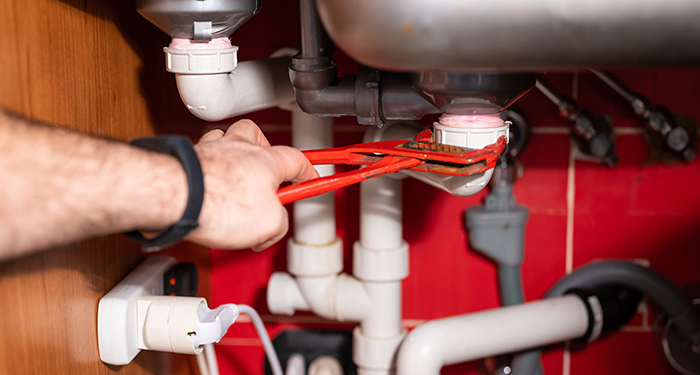
They are highly trained specialists who can handle a wide range of issues, such as unclogging drains or toilets, repairing damaged fittings, replacing dangerous water heaters, and repairing leaks.
The cost of hiring a plumber varies according to where you live in the country as well as the type of service you provide. The typical plumber charges between £40 and £80 per hour.
Plumbers' day rates range from £180 to £350 per day but expect to pay 20 - 30% more per day if the plumber is trying to install an appliance in your home.
Call-out fees are typically set at twice the standard hourly rate, but they include the first hours’ worth of labour. So expect to have to pay 2.5 to 3 times the standard hourly rate for an urgent plumber calls out.
You should try your local plumber and see how much the job will cost, how much their hourly rate is, as well as how long the job will take. The overall cost of a plumber is generally made up of the hours spent as well as the cost of the parts.
Sinks, toilets, as well as other plumbing components that are hard to access or require dismantling and reassembly later will take longer and cost more.
The average plumber charges between £20 and £40 per hour. However, the overall cost will vary based on the extent of the job. In addition, prices vary depending on where you live in the United Kingdom.
For example, the living cost in London and the southeast is frequently higher than in other parts of the country.
Keep in mind that the final plumber cost will be calculated by travel and transportation, ease of access to your property, and any fees or expenses involved with cars parked at your home.
Drain cleaning will set you back £100 - £150 in labour, unclogging a toilet will set you back £75 - £150, and a slow draining sink will set you back around £150 - £200.
However, a day rate may be less than an hourly charge if a plumber knows they'll be working on a job for the entire day. A typical day rate will range between £450 and £550.
Larger, more established businesses frequently charge more than small sole proprietors, though they may have standard pricing for individual programs that show you the total cost before hiring them.
How Long Does It Take to Unblock a Drain?
Depending on what drain is blocked will depend on the duration of the job. Here we will go over the different durations to unblock a drain, so you will know how long the tradesmen will be at your home.
If your toilet does not flush, the water does not drain, water gurgles in your shower/bath drain, and liquids come out of the sewage clean-up outside your home, you have a blocked toilet. If you need to call an emergency plumber to unclog a toilet, the job will most likely take 1 to 2 hours.
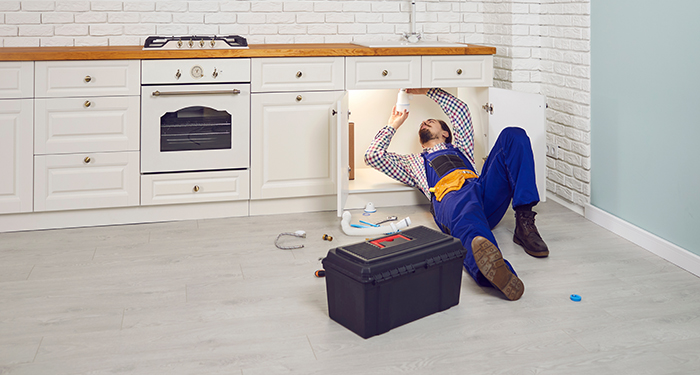
Like a clogged toilet, a clogged sink usually occurs when something that would not have gone down the drain does. In restrooms, hair and small objects are common, whereas grease, oil, and bits of food are frequent in kitchens.
Like unclogging a toilet, unclogging a sink should take 30 minutes to an hour and require no special tools. High-pressure water jetting, both of which take about an hour to complete. A more involved job, such as a complete system clearout, can take up to 2 hours to complete.
The table below will break down the durations to unblock a drain:
| Job | Duration |
|---|---|
| Unblock toilet | 1 – 2 hours |
| Clogged sink | 30 minutes |
| High-pressure jet wash | 1 hour |
| The system clears out | 2 hours |
Types of Unblocking Drain Methods
A clogged drain is one of the most common reasons for calling a plumber. However, blocked sinks are really the root cause of a wide range of minor issues, from foul odours to water that simply won't drain.
However, if these problems are allowed to worsen, life can quickly become a nightmare. In this section, we will discuss the various methods for unblocking and draining and their benefits and drawbacks.
Drain Jetting
Drain jetting, also known as water jetting or jet drain cleaning, is a cleaning method that blasts a high-force jet of water through a flexible hose to break down blockages in drains and pipes.
Once the obstruction has been identified, the hose is directed at the offending blockage or the drain jetting machine is activated; the impact of the water on the obstruction causes a breakdown in the materials, and the blockage is cleared with persistence.
You may notice that sewage and other unpleasant items escape from the open drain while your tradesperson is unclogging it – your tradesperson will wash away any overflow that has occurred during the unclogging process.
Pros
- Breaks down materials
- Cleared with persistence
Cons
- It can create a slight mess
Drain Rodding
Drain rodding is a common drainage technique used by professionals that involve the use of flexible rods. These rods are screwed together from end to end to fit into a drain and loosen or break up a blockage. This method typically costs between £80 and £145.
Because the rods can quickly dislodge a small obstruction, this technique is suited for smaller blockages in sinks or mainstream sewer pipes. They can also be used to remove roots that have grown into the drain or sewer.
The disadvantage of using drain rodding is that it is not suitable for more extensive blockages because it is only useful for breaking up clots rather than completely removing them.
Pros
- Good for small blockages
- Can remove roots that have grown over time
Cons
- Not suited for bigger blockages
Plunger
Because the plunger is designed to unclog toilets and drains, it is used first. Next, a plunger aids in the removal of a blockage by using a vacuum. Once a blockage is loose, we can dislodge it completely.
Pros
- Works for small blockages
- Most useful
Cons
- No good for big blockages
Toilet Snake
If the plunger does not completely unclog the toilet, which it frequently does, we will use the auger or toilet snake. This device employs a rotating head to break through any blockages that may exist further down your pipes.
Pros
- Can fix blockages further down the drain
Cons
- Not always suitable
Auger
An auger is one of the most useful tools in the arsenal of a professional plumber. They are also referred to as plumbing snakes.
This adaptable tool can snake its way over any drain to reach the clog. As a result, it can be found in both the kitchen and bathroom.
Pros
- Useful
- Adaptive
Cons
- Expensive
FAQs
Q: What is the best way to unblock a drain?
A: In a measuring cup, combine 1/3 cup bicarbonate of soda and 1/3 cup vinegar. It will fizz instantly, and you should pour it down the clogged drain as soon as possible.
The fizzing action will aid in the removal of gunk, hair, and grime that has accumulated in the pipe.
Q: When should you call a plumber out to help?
A: If your home's drains are clogged, emit an unpleasant odour, or are impossible to unclog with a plunger, it's time to call a plumber.
Plungers are frequently effective in clearing drains, but if they are not, you will need the assistance of a plumber.
How do you know if your drains are blocked?
- Unpleasant odours emanate from the drain. Drains that are clogged emit foul/unpleasant odours.
- Drainage is slow. Any water that is present in the pipe will drain slowly if there is a blockage.
- Water levels have risen.
- Sounds of gurgling.
Q: How do drains block up?
A: If it's an indoor blockage, it could be due to the flushing of heavy materials or objects down the drain.
Sanitary products, paper towels, and other difficult-to-flush materials can clog pipes and obstruct drains, resulting in overflowing drains. In addition, wipes, tissues, and even hair can be a source of contamination.
Q: Can drains unblock themselves?
A: Depending on the nature of the blockage, drains can unclog themselves in some cases.
For example, if your drain becomes clogged due to tree root infiltration, it will be unable to unclog itself, and you may require an engineer to conduct a CCTV drain survey to assess the problem and find a solution.

